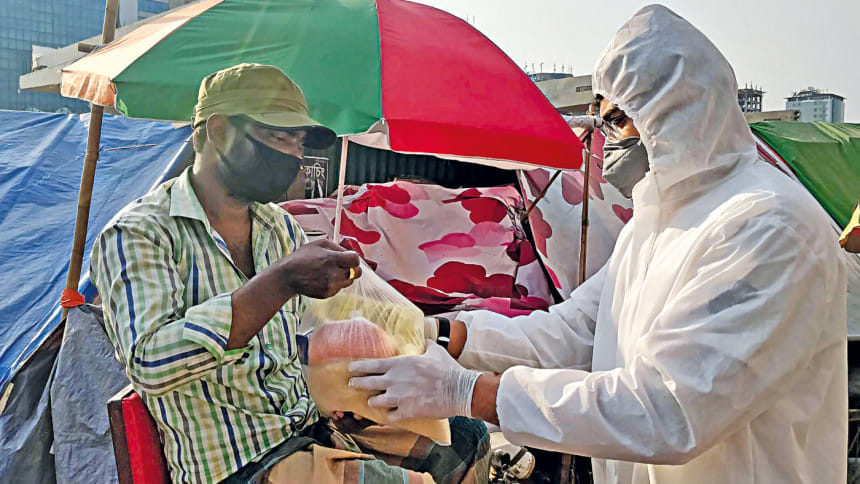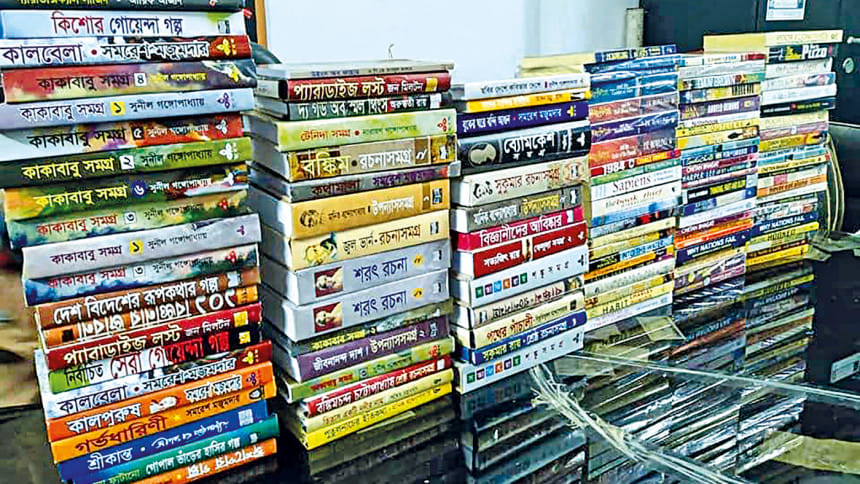Promoting reading for a good cause

The Pashe Achi initiative began its journey on March 22, 2020. What started as an idea of two friends to supply essential food items to only about 50 people has now turned into a whole team of volunteers helping over 6,000 families in distress, amid the coronavirus pandemic.
Founders Tahmid Hasan and Rafiul M Chowdhury saw that a few shopkeepers on the sidewalks of Nilkhet were still desperately trying to sell books even in this time of crisis, but in vain. Having spoken to these sellers, they realised that only providing them with a ration package would not suffice. Subsequently, they decided to buy their books in bulk, and resell them online at low fixed prices.
The Nilkhet shopkeepers receive financial help through the initiative, and selling the books online provide Pashe Achi with the funding they need to supply food packets to families in need across the country. Additionally, their plan promotes reading more books during self-isolation.
This initiative was not the first venture for Pashe Achi. Every struggling business has received their help somehow or the other, from areas in Panchagarh to Pabna or Kurigram. Once a milkman said there was no one to buy his milk. Subsequently, Pashe Achi bought milk from him and supplied it to starving people on the streets.

When Tahmid and Rafiul first had their idea, they were able to supply basic food items such as rice and lentils to CNG drivers and rickshaw pullers who were struggling to put together a decent meal, but not under any banner. Once they posted on their Facebook page about it and realised a lot of people were willing to come forward and help as well, they decided to give themselves a name, and began to crowdfund.
Soon after, when they decided to help the Nilkhet booksellers, they created 'Project Gronthomongol', which has been a success. They buy a certain number of books from the shops, mainly literature, and list them online for sale. They have been receiving almost over a hundred orders per day, and each of their customers are ordering three to four books.
However, as with every non-profit organisation, a few challenges prevail. In their whole process of collecting orders online to packaging and delivering, a large number of people are required. At present, there are only fifteen volunteers. Even if the number of volunteers increase, there remains the problem of too many people being gathered in a single small space, which is not advised right now. As the funds coming in from selling books online are widely spent on providing food for the less fortunate, they cannot be renting a space either. "We are unable to deliver books outside of Dhaka right now," adds Tahmid, a current student of Masters in Economics at DU.
Nonetheless, Pashe Achi's efforts continue ceaselessly. It is no news that between government relief funds and multiple non-profit organisations helping the poor, the middle-class people of respected professions fall through the cracks. They are naturally hesitant to demand financial support, and are not enlisted for government help either. The organisation recently reached out to some of these families in Feni. They have sent ration packages to employees of twelve private colleges there, who have not been receiving any allowances during this crisis.
When asked about future plans, Tahmid remains optimistic. "These are unprecedented times. We cannot particularly be making plans, but we know that we want to be able to continue supporting whoever needs us the most," he concludes.

 For all latest news, follow The Daily Star's Google News channel.
For all latest news, follow The Daily Star's Google News channel. 



Comments